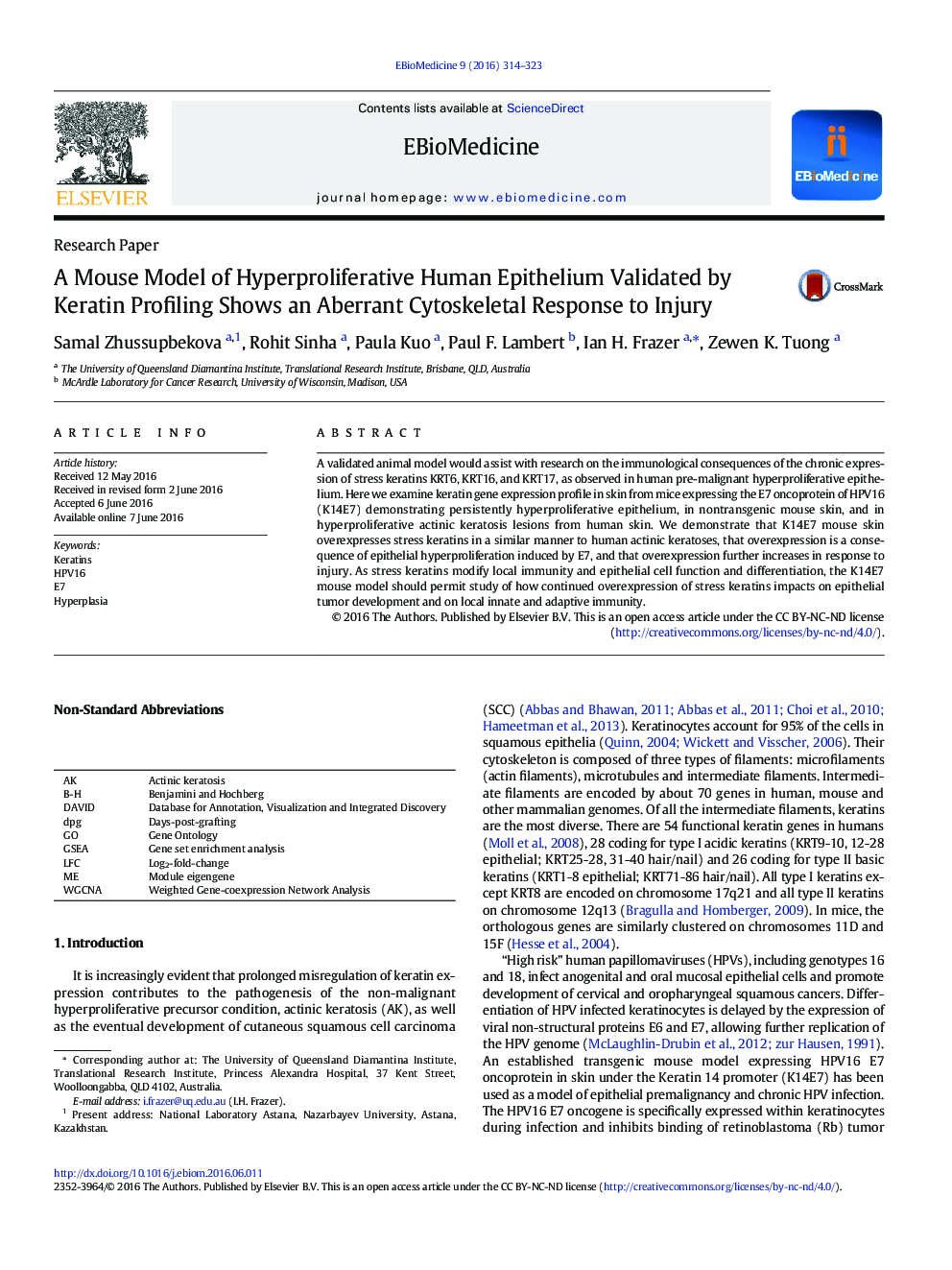| Article ID | Journal | Published Year | Pages | File Type |
|---|---|---|---|---|
| 2120727 | EBioMedicine | 2016 | 10 Pages |
•Persistence of HPV infection in epithelial premalignancy is not fully understood.•HPV16 E7 expression in skin induces expression of “stress” keratin.•“Stress” keratin induction is also observed in human actinic keratosis.•Induction of “stress” keratins persists after skin grafting of E7-expressing skin.•Disruption of E7-Retinoblastoma binding abrogates keratin misregulation.“Stress” keratins modify local immunity and epithelial cell function and differentiation. Thus, identification and validation of a suitable mouse model to study the influence of stress keratin expression normally and during tumor development is important. Mice that transgenically express high-risk HPV16 E7 oncoprotein in the skin (K14E7) presents with epithelial hyperplasia and is used for modeling HPV-associated pre-cancer. We show that “stress” keratins are induced in the K14E7 epithelium, similar to skin from patients with actinic keratosis. Thus the K14E7 mouse should permit study of how continued overexpression of stress keratins impacts on epithelial tumor development and on local immunity.
A validated animal model would assist with research on the immunological consequences of the chronic expression of stress keratins KRT6, KRT16, and KRT17, as observed in human pre-malignant hyperproliferative epithelium. Here we examine keratin gene expression profile in skin from mice expressing the E7 oncoprotein of HPV16 (K14E7) demonstrating persistently hyperproliferative epithelium, in nontransgenic mouse skin, and in hyperproliferative actinic keratosis lesions from human skin. We demonstrate that K14E7 mouse skin overexpresses stress keratins in a similar manner to human actinic keratoses, that overexpression is a consequence of epithelial hyperproliferation induced by E7, and that overexpression further increases in response to injury. As stress keratins modify local immunity and epithelial cell function and differentiation, the K14E7 mouse model should permit study of how continued overexpression of stress keratins impacts on epithelial tumor development and on local innate and adaptive immunity.
